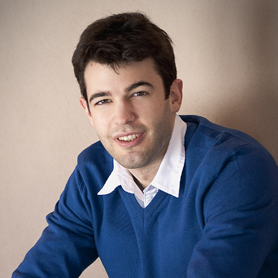Victor Couture, Phd Candidate, Department of Economics

150 St. George Street, Rm. 350
Toronto, Ontario
M5S 3G7, Canada
Phone: 647-225-3399
victor.couture@utoronto.ca
Research Interests
Applied Microeconomics, Urban Economics, Public Economics
Papers
Valuing the Consumption Benefits of Urban Density, Job Market Paper View Abstract
Density is a defining feature of cities, yet there is little evidence as to how consumers benefit from urban density. This paper investigates the consumption value of urban density by combining travel data with microgeographic local business data from Google's pages. I show that increased density enables consumers to both realize welfare gains from variety and save time by making shorter trips. I then estimate the gains from density in the restaurant industry, identifying an individual's willingness to pay for access to a slightly preferred location from the extra travel costs that she incurs to reach it. The results reveal wide disparities across areas in a variety-adjusted restaurant price index, leading to significant geographic welfare differentials. Within large metropolitan areas, the index generally drops by more than 20% from a city's periphery to the denser downtown core. This decrease represents yearly gains of about $400 for an average household, considering restaurants only. The model predicts a key feature of the data, that increasing the density of destinations generates little reduction in trip times. Most of the gains from density are therefore gains from variety, not savings on travel time. Americans' aggregate welfare gains from access to a variety of eating options beyond the one restaurant closest to them amount to approximately 2% of consumer expenditures, the first estimate of the gains from variety in the service sector.
Knowledge Transfers in Cities: An Auction Approach View Abstract
I propose a new micro-foundation for knowledge spillovers. I specify a model of a city in which
uncompensated knowledge transfers to entrepreneurs are bids by experts in auctions for jobs. The model
derives from the key ideas about how knowledge differs from other inputs of production, namely that
knowledge must be possessed for its value to be assessed, and that knowledge is freely reproducible (Arrow
1962). The model identifies conditions under which knowledge spills through non-market interactions, as
opposed to being transacted in markets. Endogenous agglomeration economies result from growth in the
number of meetings between experts and entrepreneurs and from heightened competition for jobs among
experts.
Speed (with Gilles Duranton and Matt Turner) View Abstract
We investigate the determinants of driving speed in large US cities. We first estimate city level supply functions for travel in an econometric framework where both the supply and demand for travel are explicit. These estimations allow us to calculate a city level index of driving speed and to rank cities by driving speed. Our investigation of the determinants of speed provides the foundations for a welfare analysis. This analysis suggests that large gains in speed may be possible if slow cities can emulate fast cities and that the deadweight losses from congestion are sizeable.
Curriculum Vitae
Teaching
I am not teaching any courses this year. In the past I have taught Mathematical Methods for Economic Theory (Syllabus) and Microeconomics (Syllabus). Here are my Teaching Evaluations.
